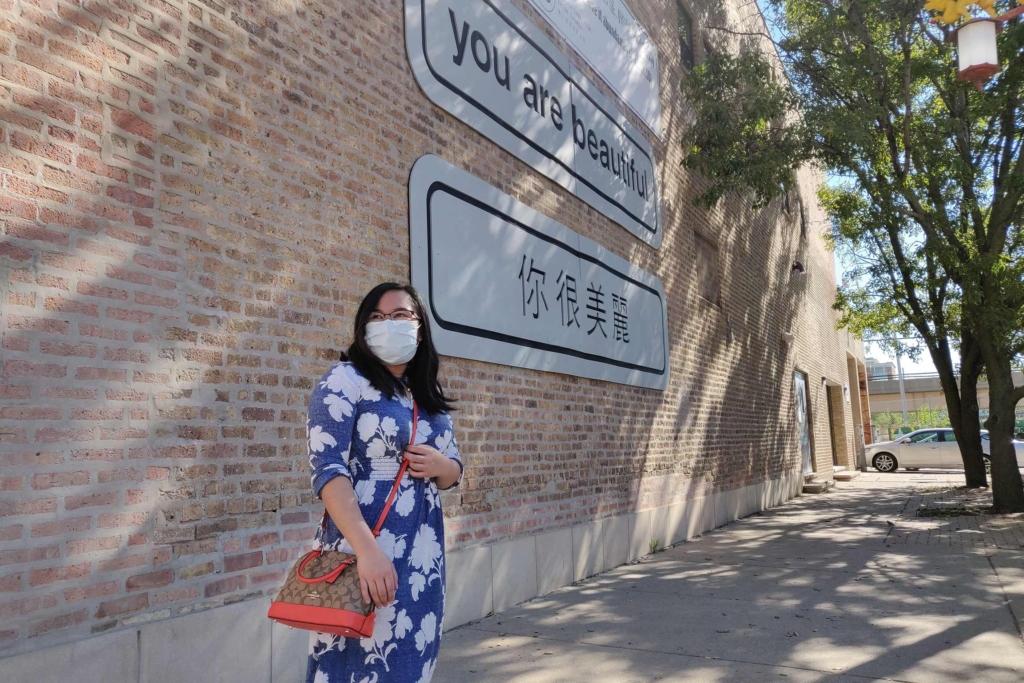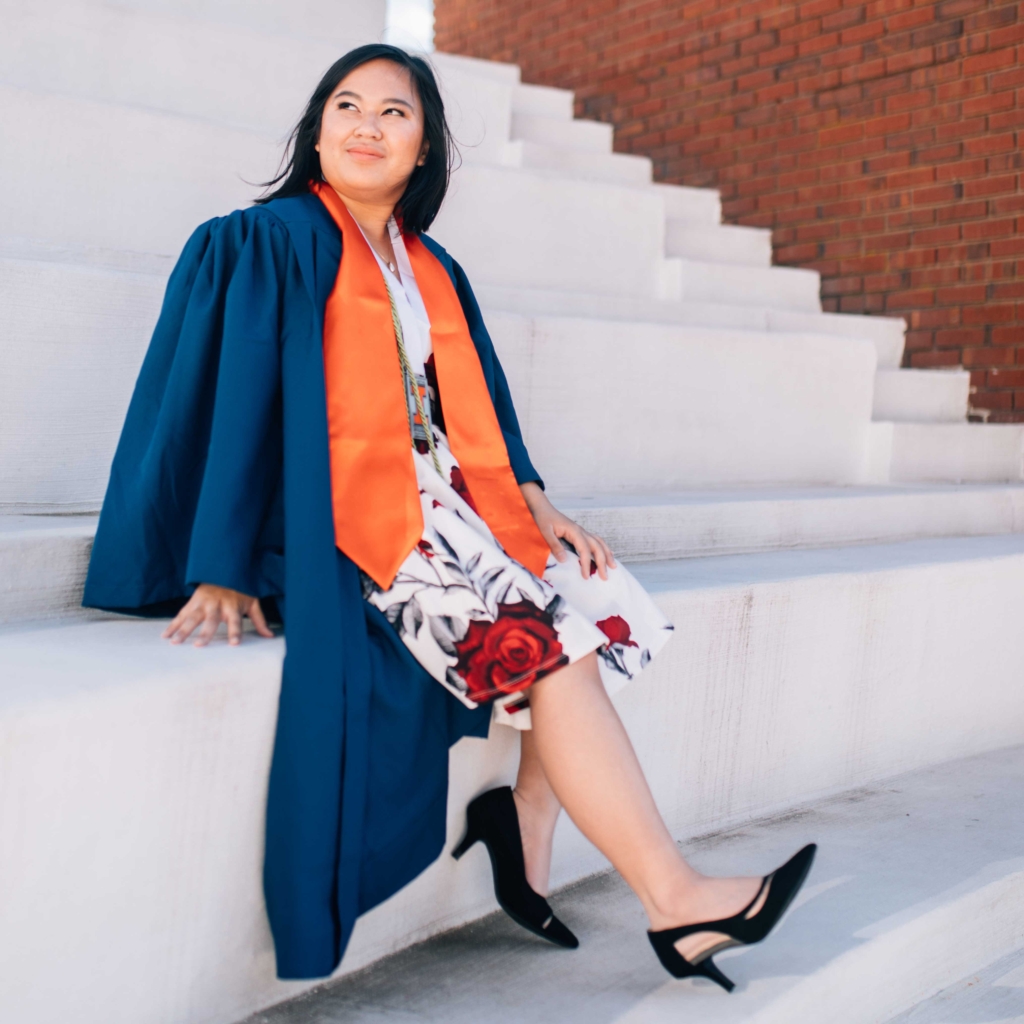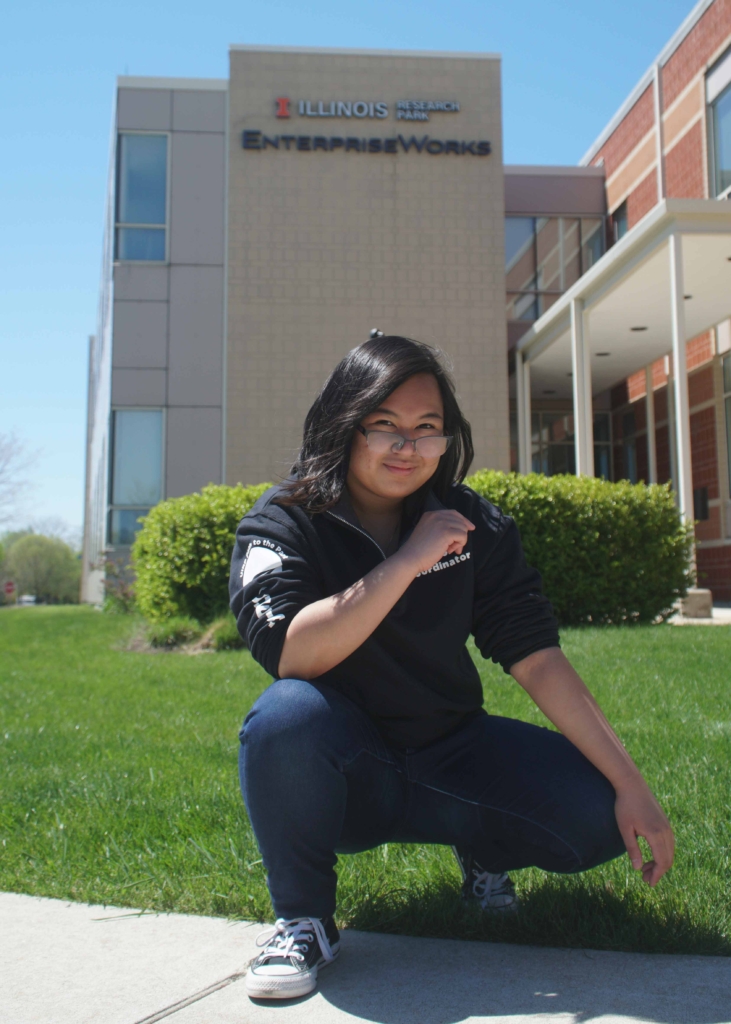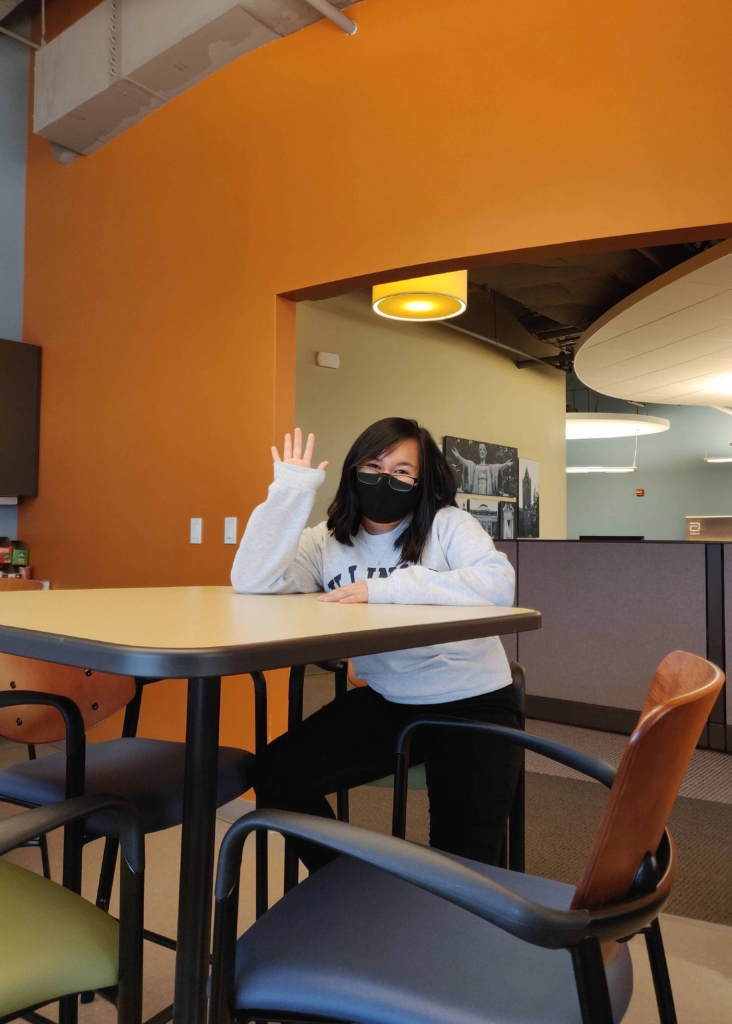Cherish is a senior studying community health with a concentration in health planning and administration. Blending a love of the humanities with her work at Research Park, the Filipino American has carved her own path at UIUC while reshaping her family’s perspective. We sat down to hear her story and learn how she’s making a difference on campus and beyond.
Why are you excited to tell your story?
“I love talking about my story, because everyone thinks, ‘Oh, the humanities can’t get you anywhere,’ or ‘Humanities will only get you into teaching.’ No, no, you can take it where you want it to go.”

When did you learn that you preferred the humanities?
“When I was growing up, I was hit with the ‘standard three options.’ I could be a lawyer, I could be an engineer, or I could be a doctor, and that was it. That was all that my parents ever mediated. And, of course, I sucked it up like a sponge because they’re my parents.
“Then, when I was in high school, I realized that I really enjoyed my time in the humanities and I was getting so much more out of it. I love the critical-thinking aspect of it—having an open answer as opposed to, say, math, where you have a set answer, so you’re either wrong or you’re right. I thought, ‘Okay, how can I blend that joy that I find in critical thinking and apply it to health?’ Because I knew that I wanted to make an impact in that specific way.”
And so you chose to pursue a degree in the humanities at UIUC. Can you reflect on that decision?
“I know at the time I was doubtful, because humanities [education] wasn’t pushed in Filipino American culture. It just wasn’t. I had so many people telling me when I was leaving my high school, ‘Oh, you’re just going to end up a teacher,’ as if teaching is a bad thing, which it absolutely isn’t.
“If I had a chance to talk with 17- to 18-year-old me who’s facing those conversations and facing those doubts, I would say: ‘You can grow however you want to as an individual; you will be completely in control of your journey, especially at U of I, where you have so many advisors who are willing to talk with you and listen to you.’ …
I ended up for the better.”
Can you talk about your path to community health?
“I entered Illinois with just an English degree, and they didn’t have the special tracks they do now. I was thinking, ‘Okay, maybe I’ll do integrative biology as a double major.’
“I sat there as a sophomore taking classes and I liked it, but it wasn’t enough. Looking into cells was fascinating, but I wanted to look at it from a preventive angle: Is there a new way to approach health that isn’t necessarily about care? What can we do to help people set up their health status before things get worse? And what other aspects environmentally can impact health?
“I think that’s how my interest really got kickstarted—when I was finally in the right classes, sitting in community health 100 and 101, thinking to myself, ‘Yes, this is how I want to [make an] impact; I want to make messaging that teaches people.’”
And this led you to pursuing an internship at Research Park. Can you talk about the kind of work you do there?
“My most recent experience is in Abbott at Research Park. I’ve done COVID-19 research and will actually be acknowledged in one of the studies that I contributed to, which is fantastic as an undergrad. I’m very blessed that they were willing to do that for me. I’ve also helped with their health economics team. …
“I take their messaging and make it more understandable for audiences like yourself and for professional people who actually work in the nutrition field. So just tailoring for their audience and making sure that their messaging is correct. It’s very enjoyable.”
What skills have you picked up during your time at Research Park?
“Fast-paced environment. You see that description everywhere. You feel that at Research Park! It’s because when you are innovative and you are working in a disruptive space, things have to go fast; otherwise, someone’s going to beat you to it. …
“The other skill that I developed was being able to really get language into what it needs to be for various audiences. Had I just kept to only writing within the English major context, I would be very good at writing research papers, writing persuasion papers, anything like that. But being able to apply the critical thinking skill of, say, looking at a piece of text and then summarizing it … That was an interesting challenge.”
What are you most proud of when it comes to your work in Research Park?
“One of my proudest moments happened to me during my exit interview at EnterpriseWorks, [where] they were giving me feedback on everything that I’ve done. They told me that they had trusted me so much that I was practically a full-time staff member. I didn’t realize it at the time, but one of the biggest things I will take away was that they let me lead a team, and they really let me do it independently. … I will always take that with me, to know that other people who are infinitely more qualified than me really trusted me to do such heavy lifting.”
What other work experience have you had as an undergrad?
“I have also worked with Chicago Department of Public Health with their COVID-19 efforts, making sure that their messaging is what it needs to be, and also helping them understand what social media analytics can do. They weren’t really sure about the power behind it, and it really is a powerful tool to understand who’s interacting with us, and are we missing anyone when we’re trying to get, say, vaccines out or something like that.”
After seeing everything you’ve accomplished, how have your parents’ opinions changed?
“Their mindset didn’t change until I entered Research Park … When I started telling them about the different analytics I was doing, and how I helped out 16 different businesses in Illinois, they took a step back. Finally, they were like, ‘Wait a minute, you’re actually making an impact with humanities.’ And I’m like, ‘Yes, I am. This is not what you were expecting; I’m not working with patients at the bedside, but I still have a wide-reaching impact in Illinois.’
What do you hope to do in the future?
“Ultimately, my long-term career goal is to become a health communications specialist at the CDC.”

Finally, what would you tell incoming students who are in a similar position as you once were?
“Don’t be afraid of individuality. You have to be willing to take ownership of your path and what you want to do, apart from what other people see for you. Oftentimes, when other people speak with you, they can project a little bit of themselves. There’s nothing wrong with that—we’re all human, and sometimes, we want to see our mistakes become something a whole lot better. … But there is nothing wrong with being a little bit selfish and wondering, ‘What really is out there for me that hasn’t been predesigned for me?’ … Really, don’t be afraid of looking at yourself as an individual and what you want.”

